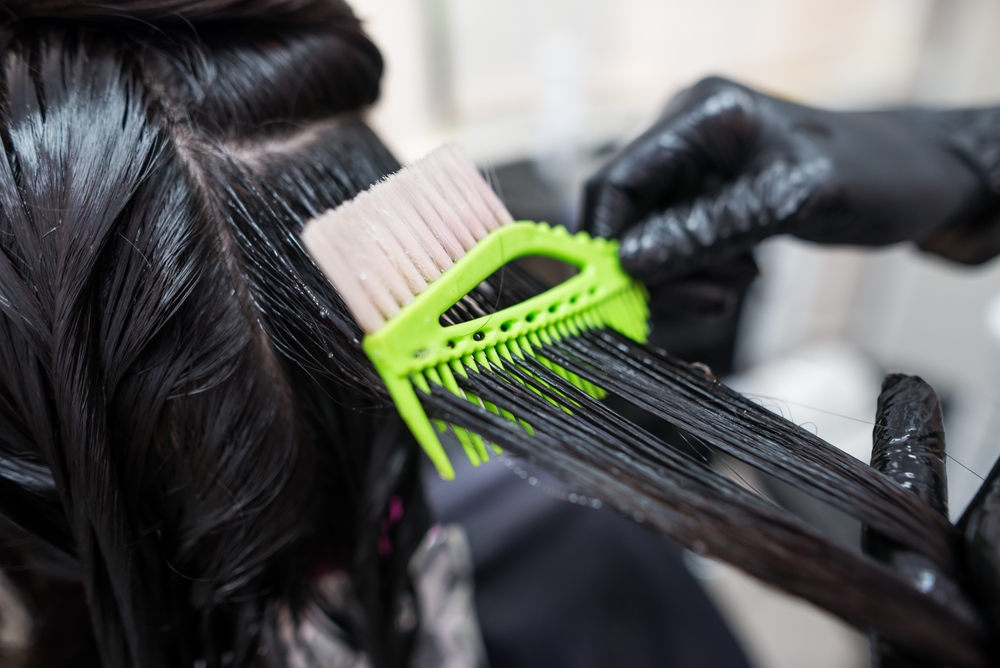A repeatedly delayed FDA ban on the dangerous chemicals in hair relaxing/straightening products is now likely stalled indefinitely due to a Trump executive order pausing all new regulations and external communications from federal health agencies.
The FDA previously promised to decide by April 2024 whether to ban formaldehyde in chemical hair relaxers.
The executive order, titled “Regulatory Freeze Pending Review,” was among several Trump signed on his first day back in office. It pauses any new rules or regulations before his team reviews them, and delays established rules not yet implemented.
The freeze was originally slated to be through Feb 1 but remains in effect.
The FDA had been preparing to ban formaldehyde in 2016, but Trump issued a similar regulatory freeze during his first term, stalling the ban’s progress ever since.
The FDA’s April 2024 deadline came after several self-imposed delays over the past few years. It was moved to July, then September. The newest deadline before the Trump order was March 2025.
The Dangers of Hair Straightening Products
The FDA has known of the risks of formaldehyde in chemical relaxers since at least 2015.
The agency can regulate, but not approve, cosmetics. It can take action, such as involuntary recalls, against manufacturers that violate safety laws such as the Food, Drug, and Cosmetic Act and Fair Packaging and Label Act.
Research on the dangers of hair relaxer chemicals has linked them to several kinds of cancer and other serious reproductive health problems. A major study released in October 2022 revealed that women who use hair relaxers at least four times a year are more than twice as likely to develop uterine cancer than those who do not. Black women, many of whom have used relaxers on their natural hair since childbirth in response to discrimination, are more affected than anyone else.
The chemicals in hair relaxers interfere with the body’s endocrine system, which controls hormones. Examples of endocrine disruptors include BPAs, PFAS, and pesticides, which are found in food, water, and many products. They can block, mimic, or alter normal hormonal function, causing cancer, reproductive issues, weakened immunity, and developmental delays.
The U.S. has banned just 11 cosmetics ingredients, in contrast with the European Union, which has banned formaldehyde and more than 1,300 others.
Numerous groups of American health organizations, physicians, and scientists have long advocated for a ban.
Exposure to formaldehyde can cause irritation to the eyes, nose, and lungs; headaches and dizziness; sore throat, cough, and wheezing; and vomiting, nausea, rash, and chest pain. The formaldehyde in hair relaxers is released when exposed to the heat of hair straightening tools.
Status of Hair Relaxer Cancer Lawsuits
The first lawsuit against hair relaxer manufacturers, including Revlon and L’Oreal, was filed shortly after the October 2022 study’s release. Less than five months later, there were enough similar hair relaxer lawsuits to consolidate them into multidistrict litigation (MDL) under the Northern District of Illinois. As of January 2025, the MDL contains more than 9,800 active lawsuits, one of the largest beauty product mass torts in history. Bellwether trials, which will try a few individual cases in order to get a sense of how the rest will go, are scheduled to begin in November 2025.
The hair relaxer lawsuits allege that manufacturers marketed their products as safe despite knowing the risks of uterine cancer and other conditions. Plaintiffs are seeking compensation for medical bills, lost wages, pain and suffering, and more.













